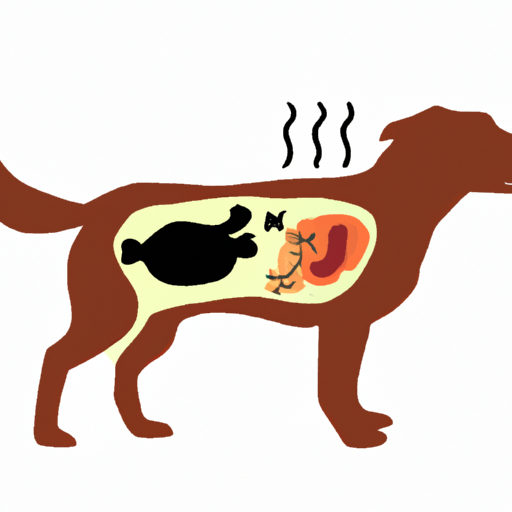As a caregiver for your beloved pet, understanding the health issues that can affect them is crucial. One such condition that can impact dogs is colitis. Let’s dive into the causes, symptoms, and treatments for this disease.
Understanding Colitis
Colitis refers to inflammation of the colon. It can occur suddenly, known as acute colitis, or over a long period, known as chronic colitis. Your dog’s health can significantly be affected by either type.
What Causes Colitis in Dogs?
There are numerous potential causes of colitis in dogs:
- Dietary indiscretion: This is when your dog eats something they shouldn’t have, like spoiled food or non-food items.
- Food allergies or intolerances: Certain foods might trigger an allergic reaction, causing inflammation in the colon.
- Parasites: Whipworms, among other parasites, can cause colitis.
- Stress: Just like humans, dogs can suffer from stress-induced colitis.
- Infections: Bacterial or viral infections can lead to colitis.
Remember, it’s not always easy to determine the cause. Sometimes, despite thorough testing, the cause of colitis remains unknown, known as idiopathic colitis.
Symptoms to Look Out For
Typical symptoms of colitis in dogs include:
- Frequent, small volume diarrhea
- Blood or mucus in the stool
- Pain or straining during defecation
- Weight loss
- Decreased appetite
Watch for these signs and seek veterinary help if you notice any of these symptoms in your dog.
How is it Diagnosed and Treated?
Diagnosis of colitis starts with a thorough physical examination and history taking. Your vet might also perform tests like blood tests, fecal tests, and possibly colonoscopy.
The treatment will depend on the underlying cause. It may involve:
- Changing your dog’s diet
- Medication to control inflammation and other symptoms
- Deworming medication if parasites are the cause
- Treating any underlying infection
In chronic cases, ongoing management may be necessary.
Prevention Measures
While you can’t prevent all cases of colitis, there are steps you can take to reduce your dog’s risk:
- Keep your dog’s environment clean
- Avoid sudden changes in diet
- Offer a balanced, high-quality diet
- Regularly de-worm your dog
- Minimize stress
Frequently Asked Questions
Q: Can colitis in dogs be cured?
A: Yes, with proper treatment, many cases of colitis can be cured. However, some may require ongoing management.
Q: Is colitis in dogs contagious?
A: No, colitis is not contagious between dogs.
Q: Can my dog die from colitis?
A: While colitis can be serious, death from colitis is rare with appropriate treatment.
Q: How long does it take for a dog to recover from colitis?
A: Recovery time varies depending on the cause and severity, but many dogs start to improve within a few days of treatment.
Caring for a dog with colitis can be challenging, but your love and dedication can make a world of difference in their recovery. Stay informed, stay vigilant, and remember to consult with a professional veterinarian for any health concerns regarding your pet.



